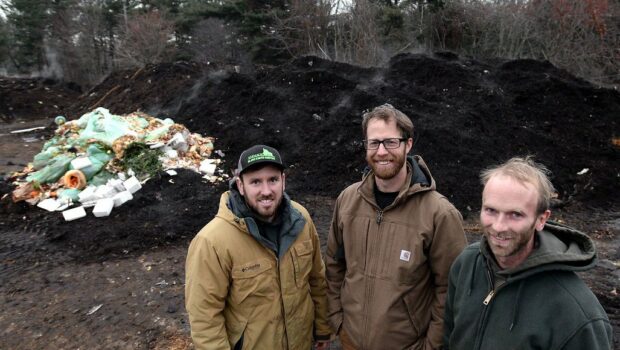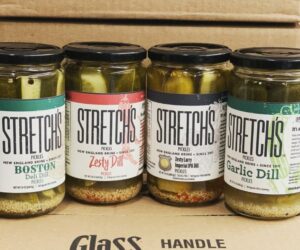Compost, Grow, Eat, repeat…
by Conor Miller- Founder, Black Earth Compost
This summer my four-year-old son came to understand what his Papa does for work. He now knows the difference between trash, recycling, and composting. He is taking the fruit sticker off the banana peel and tossing it into the green bin. Puts the green bin in his kid’s electric car and drives it to the curb to set it out on the weekly collection day. In spring he helped hold the wooden boards of our raised bed kit made by Black Earth Compost, helped shovel the compost/soil mix into the bed, and planted the tomatoes, strawberries, cucumbers, squash, and more. Now she is in harvest mode, plucking cucumbers and tomatoes on almost a daily basis. Compost, Grow, Eat, repeat…
What he doesn’t know is that composting is at the nexus of three crises: all MA landfills will be closed by 2030 and we currently send our waste on trains to Ohio, Virginia, and beyond, which will get extremely expensive, and compost is the heaviest element of the waste stream to divert. The US has a topsoil crisis on our farms that only compost can alleviate. And compost is an ideal means to pull CO2 out of the air by growing strong plants, and storing the carbon long-term in the soil. These are three current crises that every household feels now, and will feel more the slower we are to address them.
Black Earth Compost was founded twelve years ago to collect wasted food scraps from residents, schools, and restaurants, convert them into super nutrient-rich compost (most compost is merely leaves and grass clippings), and help enable people to grow their own food. The pandemic has shown us that people are really wanting to lean into this cycle: Compost, Grow, Eat, repeat. Some want to reduce their waste (compostable waste makes up 40% of household trash), others want to have raised beds and produce their own food, and both are more sustainable means of moving forward.
Because of this demand to have food scraps collected, Black Earth has begun expanding into the Worcester area this year. We currently have 137 subscribers in Worcester at $114.99 per 6-month term for weekly collections or $89.99 per 6-month term for every other week’s collections. When we get to 750 subscribers we will lower the prices by 30%. Then when we double to 1500, we can lower prices by another 30%. This incentivizes residents to work together to grow large and efficient compost collection services. Black Earth has reached these lower tiers with dozens of towns across Eastern MA including Newton, Brookline, Lexington, Belmont, Arlington, and Natick. On the North Shore, everywhere from Swampscott up the coast to Newburyport is reduced pricing.
It’s not just residents that can compost. The largest producers of food waste are schools and commercial generators. In Worcester, Clark University and Worcester State are among the commercial customers that Black Earth picks up from. This fall the MA DEP is requiring all entities that produce 1000 lbs or more of organic waste to compost it, which affects most medium-sized restaurants and large schools.





